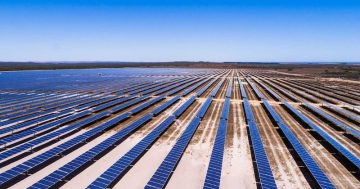 Research in the University of Queensland (UQ) has led to a warning that droughts lasting two decades or longer are likely to increase as a result of climate change.
Research in the University of Queensland (UQ) has led to a warning that droughts lasting two decades or longer are likely to increase as a result of climate change.
Hamish McGowan, of UQ’s School of Earth and Environmental Sciences, said the findings suggested climate change would lead to increased water scarcity, reduced winter snow cover, more frequent bushfires and wind erosion.
He had come to this conclusion after his team made an analysis of geological records from the Eemian Period — 129,000 to 116,000 years ago — which offered a proxy of what could be expected in a hotter, drier world.
“We found that in the past, a similar amount of warming has been associated with mega-drought conditions all over south-eastern Australia,” Professor McGowan said.
“These drier conditions prevailed for centuries, sometimes for more than 1,000 years, with El Niño events most likely increasing their severity.”
He said the team engaged in paleoclimatology — the study of past climates — to see what the world would look like as a result of global warming over the next 20 to 50 years.
“The Eemian Period is the most recent in Earth’s history when global temperatures were similar, or possibly slightly warmer, than present,” Professor McGowan said.
“The ‘warmth’ of that period was in response to orbital forcing, the effect on climate of slow changes in the tilt of the Earth’s axis and shape of the Earth’s orbit around the sun.”
He said that in modern times, heating was being caused by high concentrations of greenhouse gases. However, the Eemian Period was still a good analogue for current-to-near-future climate predictions.
The researchers worked with the NSW Parks and Wildlife service to identify stalagmites in the Yarrangobilly Caves in the northern section of Kosciuszko National Park.
Small samples of the calcium carbonate powder contained within the stalagmites were collected, then analysed and dated at UQ.
That analysis allowed the team to identify periods of significantly reduced precipitation during the Eemian Period.
“They’re alarming findings, in a long list of alarming findings that climate scientists have released over the past few decades,” Professor McGowan said.
“We hope that this new research allows for new insights to our future climate and the risks it may bring, such as drought and associated bushfires.”








